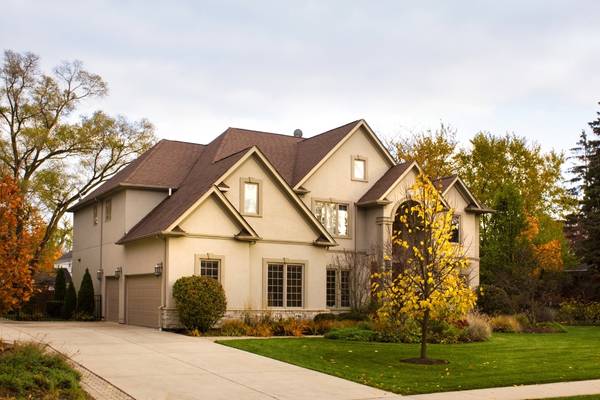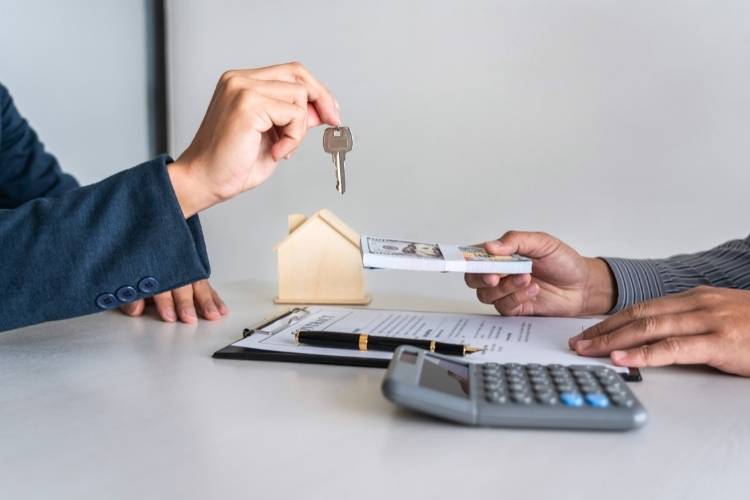
For many people, buying a home is the biggest purchase they will ever make. It's a huge financial investment, and the process can be both exciting and daunting.
You want to find the perfect home, but you also want to make sure that you can afford it and that you're getting the best possible deal.
If you're thinking of buying a home in London, you need to follow a few key steps to ensure that the process goes as smoothly as possible. Read on for our guide to buying a home in London.
Quick Navigation
Research the Market
The first step in buying a home in London is to research the market. Before making any decisions, it is important to have a good understanding of the current market conditions.
This includes things like looking at average prices in the area you are interested in and considering things like rental yields and future growth potential.
You need to know the different areas and what each one has to offer. Take some time to look at different properties in different parts of the city, and get a feel of what you can expect to pay.
It's also a good idea to speak to local estate agents and get their opinion on the current market conditions and their advice on the best areas to buy in.
Get Your Finances in Order
The next step is to get your finances in order. This means getting mortgage pre-approval from a lender.
This will give you an idea of how much you can afford to spend on a property. Having a deposit saved up is also a good idea, as this will make buying a home much easier.
If you're unsure how to get started with this, it's a good idea to speak to a mortgage broker. They will be able to assess your financial situation and give you some tailored advice.
They can also help you find the best mortgage deals and negotiate with lenders on your behalf.
Find the Right Property
Once you know how much you can afford, you can search for properties that fit your budget. Finding a property that meets your needs both now and in the future is important.
For example, if you're planning on starting a family soon, you'll want to ensure that there are enough bedrooms and that the property is located in a good school district.
This is where the help of a good estate agent will come in handy. They will be able to show you a range of properties that meet your budget and requirements.
It's important to take your time when looking for a property. You need to ensure that you're happy with the location, the size, the condition of the property, and course, the price.
Once you've found a property you're interested in, it's a good idea to get a survey done to check for potential problems.
Make an Offer

Once you've found the right property, it's time to make an offer. Things can get a bit stressful, as you will be dealing with a lot of money.
It's important to remember that you don't have to offer the asking price. It's quite common to negotiate on price, especially in a buyers' market.
If you're unsure how to make an offer, your estate agent will be able to help you. An experienced real estate agent will be able to guide you through this process and ensure that you don't overpay for the property.
Solicitor and Conveyancing
Once your offer has been accepted, it's time to start the legal process. This is where a solicitor or conveyancer comes in.
They will ensure that the sale goes through smoothly and that all legal paperwork is in order. Take the help of reputed London property conveyancers like AVRillo.
The solicitor or conveyancer will also carry out several checks on the property. This includes things like checking for planning permission and ensuring that there are no outstanding debts on the property.
They will also prepare the contract of sale and arrange a date for the exchange of contracts.
Exchange of Contracts
The exchange of contracts is when the sale of the property becomes legally binding. This is usually done through a solicitor or conveyancer.
Once the contracts have been exchanged, you must pay a deposit (usually 10% of the purchase price).
Once the contracts have been exchanged, you will be given a date for completion. This is when the sale will be finalized, and you will be able to move into your new home.
Completion
Completion is the final step in the process of buying a property. The remaining purchase price balance is paid, and you will be given the keys to your new home.
Your conveyancer or solicitor will usually handle the completion process on your behalf and ensure that you are registered as the property's new owner with the Land Registry.
Conclusion
Purchasing a home is a huge financial investment and no small feat. However, with a little knowledge and planning, it can be a relatively smooth and stress-free process.
Following these steps will help you avoid unnecessary stress and ensure you end up with the home of your dreams.
